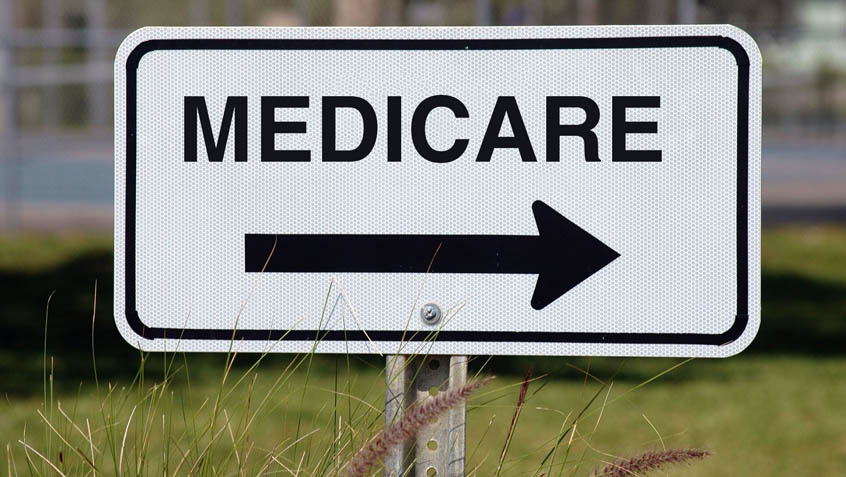Medicare Rights Provides a Summary of Policy Priorities for the Biden-Harris Administration

The Medicare Rights Center looks forward to working with the Biden-Harris administration to advance policies that protect and strengthen Medicare as well as the health and economic well-being of those who rely on its coverage. To facilitate this dialogue, in the coming weeks we will release a set of detailed administrative actions for their consideration—and possible adoption—in 2021. We will also outline our legislative priorities for the 117th Congress.
Below, we offer a brief summary of those recommendations and urge the transition team to:
- Immediately Respond to COVID-19 in ways that prioritize older adults and people with disabilities.
- Simplify Medicare Enrollment to ensure active, informed, and meaningful beneficiary choice.
- Reduce Barriers to Care by making coverage more available, accessible, and affordable.
- Address Disparities and Inequities to improve health care and coverage for all.
Immediately Respond to COVID-19
The COVID-19 pandemic and its attendant economic fallout will have a lasting impact on people with Medicare and on the program itself. While additional solutions will be necessary as the situation continues to evolve, we urge the Biden-Harris administration to first focus on the following reforms, all of which are urgently needed to help people with Medicare maintain their health, safety, and independence:
- Reinstate COVID-19 related Medicare enrollment flexibilities.
- Promote quality of life and quality of care in nursing homes.
- Ensure affordable care and treatment for all Americans.
- Provide needed economic relief.
- Support increased funding for Medicaid and other community living programs.
Simplify Medicare Enrollment
A rapidly aging population, complex Medicare rules and timelines, and an ever-evolving health care landscape means an increasing number of individuals will face increasingly complicated Medicare coverage decisions in the coming months and years. Policymakers must act without delay to better empower current and future beneficiaries to make optimal choices, both initially and annually. To that end, we suggest making Medicare decisions simpler and plan options better in the following ways.
- Modernize Part B Enrollment
- Support the Beneficiary Enrollment Notification and Eligibility Simplification (BENES) Act.
This bipartisan bill would update Medicare Part B enrollment rules for the first time in over 50 years—filling gaps in notice and education and eliminating needless breaks in coverage. - Effectively Engage Consumers.
The U.S. Department of Health and Human Services (HHS) could further empower beneficiaries through updates to its outreach strategies, decision-making tools, and educational materials.
- Invest in Unbiased Counseling and Assistance.
Champion sufficient, sustainable funding for Medicare State Health Insurance Assistance Programs (SHIPs), and for outreach to low-income beneficiaries under the Medicare Improvements for Patients and Providers Act (MIPPA).
- Align Enrollment Periods.
Shifting Medicare’s General Enrollment Period (GEP) to the fall would align it with sign up periods for other types of coverage, greatly reducing the likelihood of consumer confusion and enrollment mistakes.
- Support the Beneficiary Enrollment Notification and Eligibility Simplification (BENES) Act.
- Strengthen Plan Offerings and Oversight
- Reinstate Plan Guardrails.
We recommend restoring important, recently weakened rules governing plan quality, benefit design, and marketing tactics.
- Enhance Consumer Protections.
Using administrative levers to prevent discriminatory benefit designs and deceptive marketing practices, as well as to minimize default and sub-optimal enrollments, is also critical.
- Reinstate Plan Guardrails.
- Fill Gaps in Public Data and Reporting
- Identify Equitable Relief Patterns and Barriers.
Regular reporting could increase public understanding of the equitable relief process and inform future policymaking.
- Identify Part B Late Enrollment Penalty (LEP) Rates and Efficacy.
Similarly, enhanced data collection on beneficiary experiences with the Part B LEP could improve both agency documentation and policy.
- Identify Equitable Relief Patterns and Barriers.
Reduce Barriers to Care
On our national helpline, we frequently hear from older adults and people with disabilities who are struggling to access and afford their care. Many live on modest or limited incomes and cannot afford to pay more for care. These financial challenges—which may have been worsened by the coronavirus pandemic—along with rising health care and prescription drug costs, antiquated coverage rules, and burdensome program requirements can make it difficult for older adults and people with disabilities to obtain the care they need. The following reforms would help reduce these barriers to care by making Medicare stronger, easier to navigate, and more affordable.
- Expand Coverage and Access
- Expand Health Coverage.
Through demonstration and other authorities, HHS could work to ensure that all people with Medicare have access to oral health, vision, and hearing services.
- Examine Long Term Services and Supports (LTSS) Reforms.
We recommend considering opportunities to test the development and delivery of sustainably financed LTSS, including as an Innovation Center model.
- Level the Medicare Playing Field.
HHS must better equalize payment and coverage between Medicare Advantage and Original Medicare.
- Streamline Appeals.
Improvements to plan-level appeals processes, particularly in Medicare Part D, are long overdue. We urge the Biden-Harris administration to propose structural simplifications without delay.
- Increase Access to Telehealth Services.
Following the hard and experiential data in an ongoing way, allow Medicare to equitably cover appropriate telehealth services during the current public health emergency and beyond.
- Bolster Family Caregivers and Strengthen the Health Care Workforce.
Champion funding and programs that recognize the contributions of and challenges facing direct care professionals, health care workers, and family caregivers.
- Promote Mental Health Parity in Medicare.
Encourage equivalent Medicare coverage for mental and physical health conditions.
- Expand Health Coverage.
- Enhance Health Care and Prescription Drug Affordability
- Increase Access to Medicare Assistance Programs.
Through state outreach and administrative tools, help more low-income Medicare beneficiaries obtain the financial assistance they need to afford their coverage and care.
- Address High and Rising Costs.
Pursue administrative changes and work with Congress to improve Medicare prescription drug access and affordability. Across the program, examine ways to control and lower costs for both consumers and Medicare.
- Increase Access to Medicare Assistance Programs.
- Make Organizational Changes
- Address Vacancies.
Swiftly and thoughtfully, fill openings on the Medicare Board of Trustees.
- Promote Beneficiary Protections within HHS.
Create the long-promised Alternative Payment Models Beneficiary Ombudsman position and reinstitute a Competitive Bidding Program (CBP) for Durable Medical Equipment (DME) that has strong beneficiary protections.
- Engage Stakeholders.
To further and ongoingly incorporate the beneficiary perspective into agency policies and structures, we suggest convening regular meetings with advocates for older adults and people with disabilities.
- Address Vacancies.
Address Disparities and Inequities
We welcome the Biden-Harris administration’s commitment to advancing equity and justice and look forward to working together to address all forms of systemic, collective, and individual bias that can negatively impact Americans with chronic health care needs and as they age. Below, we suggest several areas for quick and decisive action.
- Prohibit Discrimination in Health Care
- Reverse Harmful Rules and Orders.
Roll back discriminatory policies, such as the public charge rule, the recent reinterpretation of Section 1557 of the Affordable Care Act, and the Social Security Administration’s proposed changes to Continuing Disability Reviews.
- Clarify and Reinforce Prohibitions on Discrimination.
Immediately clarify that entities that contract with Medicare and Medicaid may not deny medical care or services based on factors such as age or disability; and, separately, reinforce the Americans with Disabilities Act’s anti-discrimination provisions.
- Collect Comprehensive Data.
In Medicare and other health care programs, collect robust data to ensure the provision of appropriate, non-discriminatory care and coverage.
- Reverse Harmful Rules and Orders.
- Restore and Improve Medicaid
- Restore Medicaid Programmatic Integrity.
End damaging initiatives—including the Healthy Adult Opportunity Initiative and Medicaid work requirements—in favor of promoting promising, inclusive practices, such as continuous Medicaid eligibility.
- Encourage Access to Home and Community-Based Services (HCBS).
Expand and invest in Medicaid HCBS, as well as annually-appropriated community living programs.
- Restore Medicaid Programmatic Integrity.
- Ensure Access to Coverage Through the Affordable Care Act (ACA)
- Protect the Law and its Infrastructure.
Defend the ACA against current and future legal challenges.
- Strengthen the ACA.
Address weakened consumer protections; restore critical outreach and assistance; and promote affordable, comprehensive coverage.
- Protect the Law and its Infrastructure.
The Latest
Most Read
Trump Administration and Elon Musk’s DOGE Closing Social Security Offices, Harming Access to Services
Threats to the Social Security Administration and to Benefits Continue to Raise Alarm
New Resources Show House Budget Would Slash Medicaid, Despite Voters’ Support of Program
Federal Government Funding Decisions Loom
Add Medicare to Your Inbox
Sign up to receive Medicare news, policy developments, and other useful updates from the Medicare Rights.
View this profile on InstagramMedicare Rights Center (@medicarerights) • Instagram photos and videos









